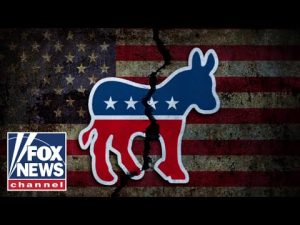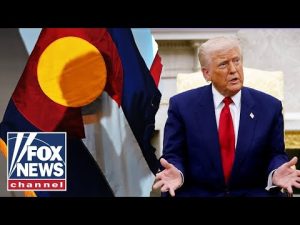In a shocking episode that unfolded in Pennsylvania, Governor Josh Shapiro’s residence became the target of an arson attempt, motivated by political beliefs surrounding the Israel-Gaza conflict. A man allegedly set fire to the governor’s home, driven by a desire for Shapiro to halt what he perceived as the unjust killing of Palestinians. However, the irony of this situation is glaring—Shapiro holds no sway over U.S. foreign policy. Yet, here we have someone resorting to violence to voice a deeply misguided belief.
The outrage surrounding this incident raises an essential point about media coverage. Many outlets barely covered the story, and those that did often downplayed the political motivations behind the attack. Imagine for a moment if the roles were reversed. What if it had been a right-wing extremist targeting a Democrat leader? The media would have begun a narrative frenzy, attributing the violence to a larger trend of right-wing hostility fueled by the podcast sphere. Headlines would scream about the dangers of radical thought. After such an attack, Americans would be inundated with discussions about right-wing extremism for months.
Yet, here we are, facing a double standard that speaks volumes about political bias in reporting. The attacker’s motivations, perceived as a manifestation of radical anti-Israel sentiment, have flown under the media radar. This lack of recognition reflects a broader reluctance to address the surge of violence stemming from extreme political ideologies on the left. The past year has seen various acts of aggression underpinned by a similar mindset, yet these events often receive less scrutiny. The media’s reluctance to connect the dots is telling.
Further complicating this issue is the reality that violence, in any form, should never be condoned or dismissed based on the political affiliations of the perpetrator. It reveals a pattern of selective outrage. Until both sides reflect on the implications of violent rhetoric and actions, it is challenging to advance meaningful dialogue. Such discussions may be uncomfortable, but they are crucial for addressing the root causes of societal tensions and political strife.
As the dust settles on this alarming incident, one thing remains clear; politicians are not immune to the consequences of radical beliefs. Those who resort to violence in the name of their ideologies only serve to drown out legitimate discussions. If there is any hope of navigating these fraught political waters, both the media and the public must engage earnestly with these unsettling realities rather than sidestep the grim truths that surround them. In a nation that cherishes democratic discourse, it would do us well to remember that violence is never the answer, no matter how justified one might feel in their cause.







